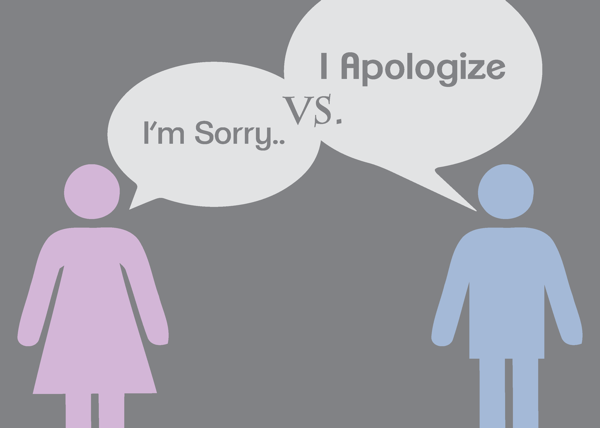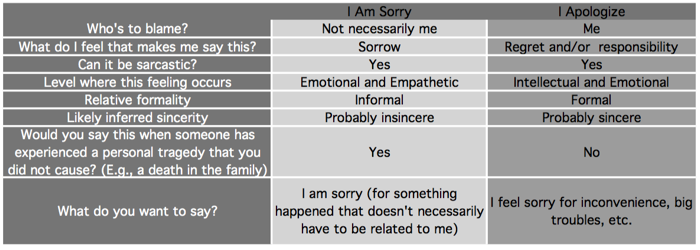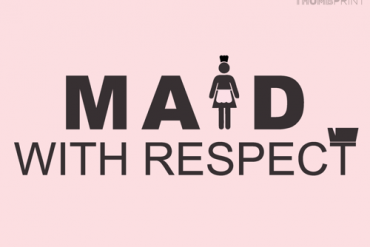The author discusses a recurring topic of how women/girls are constantly using the word “sorry” which automatically puts them in the state of having to justify what they are about to say, do or feel.

A few weeks ago I was seated at a quasi-posh dinner table with some of the best minds in the UAE. The subject matter was a challenging one and what was even better was that the main speaker is a woman.
With around 12 of us seated, 5 of us represented the female race and it made for several interesting discussion points because we covered politics, the economy and beyond. I can’t begin to tell you what a big relief it was to not talk about diaper changes and stressful workdays and instead focus on what the world is going through on an intellectual level.
The point I wanted to raise was the number of times the keynote speaker said “sorry” during the course of our 3-hour dinner discussion. Each time she had a comment, or wanted to interject or add on to a statement, it came with an automatic prefix of “sorry”. Sorry for what, I thought?
Sorry for thinking? Sorry for speaking? Sorry for being a woman? What was it about that night that warranted so many “sorry’s”. Even if she did something wrong, she would “apologize”, not say sorry. Our male counterparts never once did apologize or use the words sorry, they just spoke or waited their turn to insert a comment.
Despite having been through many incidents such as these and seeing it happen daily at work, this particular night it affected me beyond words to the point where I got mad. I began researching several sites on the difference between the sayings “I’m sorry” and “I apologize”
Most reference sites confirmed there is a subtle difference between saying “I’m sorry” and “I apologize”. On the one hand, an apology is a formal admission of a wrongdoing. It may or may not be heartfelt — i.e., a person may apologize without feeling remorseful. On the other hand, saying “I am sorry” is usually seen as being a truer admission of regret. It is what is called a “heartfelt apology.” “I’m sorry” is also used to express sympathy.*
We are what we are taught and this comes from years/decades/centuries of women made to feel guilty about doing anything at all. Does empowerment come at a price? At the price of being apologetic or saying you are sorry?
According to Deborah Tannen, a professor of linguistics at Georgetown University who has written extensively on the topic of what women should and should not say at work, women aren’t always apologizing when they say, “I’m sorry.”
“Often, it has nothing whatsoever to do with an apology but just taking the other person’s feelings into account,” she says. “And sometimes, it’s a way to get the other person to apologize.”
I am not asking for women to completely cut out those words from their vocabulary, but maybe use it ONLY when you need to use them (the chart below represents an idea of how and when to use the two words). Women do represent half of the human race, and if we are always apologizing, even during a discussion where no one is at fault and all opinions can be taken in and expressed, then we have a bigger problem than just the symbolic use of the word.
Let’s be less sorry and apologetic … unless you truly mean it.
Comparison Chart *Sourced from diffen.com

References:
- *www.diffen.com
- www.deborahtannen.com



